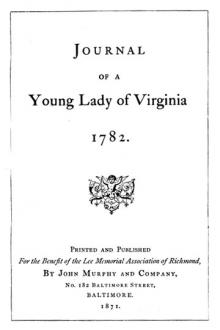The Joker, Edgar Wallace [books you have to read TXT] 📗

- Author: Edgar Wallace
- Performer: -
Book online «The Joker, Edgar Wallace [books you have to read TXT] 📗». Author Edgar Wallace
deal of difficulty, and, running down the index to discover if she had
missed any further reference, her finger stopped at the words:
‘Harlow—Mercy Mildred.
Harlow-Stratford Selwyn Mortimer.’
She would not have been human if she had not turned up the pages. For a
quarter of an hour she pored over the accounts of the dead and gone Miss
Mercy, that stern and eccentric woman, and then she saw an item ‘To L.
Edwins, �125.’ An entry occurred four months later: ‘To L. Edwins, �183
17s. 4d.’ She knew of Mrs Edwins, and had seen a copy of Miss Mercy
Harlow’s will—she had looked it up after the Dartmoor meeting, being
momentarily interested in the millionaire.
She turned to Stratford’s account, which was a very small one. Evidently,
Mr Harlow made no payments through his lawyers. If an opportunity had
occurred she would have asked Mr Stebbings for further information about
the family, though she was fairly sure that such a request would have
produced no satisfactory result.
Deprived of this interest, Aileen was thrown back upon the dominating
occupation of life—her amazement and disapproval of Aileen Rivers in
relation to Mr James Carlton.
He knew her address: she had particularly told him the number. Equally
true it was that she had asked him only to write on official business. By
some miracle she had not been called to give evidence at the inquest and
she might, and did, trace his influence here. But even that could not be
set against a week’s neglect.
‘Ridiculous’ (said the saner part other, in tones of reprobation). ‘You
hardly know the man! Just because he’s been civil to you and has taken
you out to dinner twice (and they were both more or less business
occasions), you’re expecting him to behave as though he were engaged to
you!’
The unregenerate Aileen Rivers merely tossed her head at this and was
unashamed.
She could, of course, have written to him: there was excuse enough; and
she actually did begin a letter, until the scandalous character of her
behaviour grew apparent even to Aileen II.
Saturday passed and Sunday; she stayed at home both days in case—
He called on Sunday night, when she had given up—well, if not hope, at
any rate expectation.
‘I’ve been down to the country,’ he said.
She interviewed him in the sitting room, which her landlady set aside for
formal calls.
‘Couldn’t you come out somewhere? Have you dined?’
She had dined.
‘Come along and walk; it’s rather a nice night. We can have coffee
somewhere.’
Her duty was to tell him that he was taking much for granted, but she
didn’t. She went upstairs, got her coat and in the shortest space of time
was walking with him through Bloomsbury Square.
‘I’m rather worried about you,’ he said.
‘Are you?’ Her surprise was genuine.
Yes, I am a little. Didn’t you tell me Mrs Gibbins used to confide her
troubles to you?’ There was a note of anxiety in his voice.
‘She was rather confidential at times.’
‘Did she ever tell you anything about her past?’
‘Oh, no,’ said Aileen quickly. ‘It was mostly about her mother, who died
about four years ago.’
‘Did she ever tell you her Christian name—her mother’s, I mean?’
‘Louisa,’ answered the girl promptly. ‘You’re awfully mysterious, Mr
James Carlton. What has this to do with poor Mrs Gibbins?’
‘Nothing, except that her name was Annie Maud, and the letters containing
the money, which came to her quarterly, were addressed to “Louisa,” 14
Kennet Road, Birmingham, and readdressed by the postal authorities. A
letter came this morning.’
‘Poor soul!’ said the girl softly.
‘Yes.’
It was surprising how well she understood him, remembering the shortness
of their acquaintance. She knew, for example, when he was thinking of
something else—his voice rose half a tone.
‘Isn’t that strange? Do you remember my telling you of the eighteen
thousand policemen and the Brigade of Guards, and the whole congregation
of the blessed? And now they are all agitated because Mrs Gibbins’s
mother was named Louisa! That discovery—I shouldn’t have asked you,
because I knew it already—proved two things: first, that Mrs Gibbins
committed a crime some fifteen years ago, and secondly, that this is the
second time she’s been dead!’
He suddenly relaxed and laughed softly.
‘Don’t tell me,’ he warned her. ‘I know just the fictional detective whom
I am imitating! The whole thing is rather complicated. Did I say coffee
or dinner?’
‘You said coffee,’ she said.
The popular restaurant into which they went was just a little overcrowded
and after being served they lost no time in making their escape.
They were passing along Coventry Street when a big car rolled slowly
past. The man who was driving was in evening dress… they saw the sheen
of his diamond studs, the red tip of his cigar.
‘Nobody on earth but the Splendid Harlow could so scintillate,’ said Jim.
‘What does he do in this part of the world at such an hour?’
The car turned to the right through Leicester Square and passed down
Orange Street at a pace which was strangely majestic. It was as though it
formed part of and led a magnificent procession. The same thought
occurred to both of them.
‘He should really travel with a band!’
‘I was thinking that, too,’ laughed the girl. ‘He frightened me terribly
the night he came to the flat. I mean, when I opened the door to him. And
I’m not easily scared. He looked so big and powerful and ruthless that my
soul cowered before him!’
They passed up deserted Long Acre; it was too early for the market carts
to have assembled, and the street was a wilderness. Suddenly the girl
found her hand held loosely in Jim Carlton’s. He was swinging it to and
fro. The severer side of Miss Aileen Rivers closed its eyes and pretended
not to see.
‘I’ve got a very friendly feeling for you,’ said Jim huskily. ‘I don’t
know why, but I just have. And if you talk about the philandering
constabulary, I will never forgive you.’
Three men had suddenly debouched from a side street; they were talking
noisily and violently and were moving slowly towards them. Jim looked
round: the only man in sight was walking in the opposite direction,
having passed them a minute or so before.
‘I think we’ll cross the road,’ he said. He took her arm, and, quickening
his step, led her to the opposite sidewalk.
The quarrelling three turned back and Jim stopped. ‘I want you to run
back to the other end of Long Acre and fetch a policeman,’ he said in a
low voice. ‘Will you do this for me? Run!’
Obediently she turned and fled, and as she did so one of the three came
lurching towards him.
‘What’s the idea?’ he said loudly. ‘Can’t we have an argument without you
butting in?’
‘Stay where you are, Donovan,’ said Jim. ‘I know you and I know just what
you’re after.’
‘Get him,’ said somebody angrily, and Jim Carlton whipped out the twelve
inch length of jambok that he carried in his pocket and struck at the
nearest man. As the flexible hide reached its billet the man dropped like
one shot. In another second his two companions had sprung at the
detective; and he knew that he was fighting, if not for his life, at any
rate to save himself from an injury which would incapacitate him for
months.
Again the jambok reached home; a second man reeled.
And then a taxicab came flying down Long Acre with a policeman on each
footboard…
‘No, not Bow Street,’ said Jim, ‘take them to Cannon Row.’
Aileen was in the taxicab, a most unheroic woman, on the verge of tears.
‘I guessed what they were after,’ said Jim, as they were driving home.
‘It is one of the oldest tricks in the world, that rehearsed street
fight.’
‘But why? Why did they do it? Were they old enemies of yours?’ she asked,
bewildered.
‘One,’ he said. ‘Donovan.’ He carefully avoided her second question.
The presence of Mr Harlow in his lordly car was no accident. The car
which passed down Orange Street was ostensibly carrying him to Vira’s
Club, but there was a short cut which brought him through St Martin’s
Lane to the end of Long Acre before the two walkers could possibly reach
there. What was more important was that it was very clear to Jim that he
and the girl were under observation, and had been followed that night
from the moment he left the club where he lived, until the attack was
delivered.
The reason for the hold-up was not difficult to understand, even
supposing he ruled out the very remote possibility that it was associated
with Mrs Gibbins’s death. And that he must exclude, unless he gave Mr
Harlow credit for supernatural powers.
He saw the girl to her boarding house and went back to Scotland Yard, to
find a telegram awaiting him. It was from the detective force of
Birmingham, and ran:
‘Your inquiry 793 Mrs Louisa Gibbins, deceased. Letter which came to her
regularly every quarter, and which was subsequently readdressed to Mrs
Gibbins, of Stanmore Rents, Lambeth, invariably had Norwood postmark.
This fact verified by lodger of late Mrs Gibbins of this town. Annie Maud
Gibbins’s real name, Smith. She married William Smith, a platelayer on
Midland Railway. Further details follow, Hooge. Ends.’
A great deal of this information was not new to Jim Carlton. But the
Norwood postmark was invaluable, for in that suburb of London lived Mr
Ellenbury. Further details he would not need.
But before that clue could be followed, Jim Carlton’s attention was
wholly occupied by the strange behaviour of Arthur Ingle, who suddenly
turned recluse, declined all communication with the outside world and,
locking himself in his flat, gave himself to the study of cinematography.
IN THE days which followed Jim Carlton was a busy man, and only once
during the week did he find time to see Aileen, and then she related one
of the minor troubles of life.
A new boarder had come to the establishment where she lived, an athletic
young man who occupied the room immediately beneath hers and whose
apparent admiration took the form of following tier to her work every
morning at a respectful distance.
‘I wouldn’t mind that, but he makes a point of being in the neighbourhood
of the office when I come out for lunch, and when I go home at nights.’
‘Has he spoken to you?’ asked Jim, interested.
‘Oh, no, he’s been most correct; he doesn’t even speak at meals.’
‘Bear with him,’ said Jim, a twinkle in his eye. ‘It is one of the
penalties attached to the moderately good-looking.’
Jim interviewed the girl’s new admirer.
‘As a shadow you’re a little on the heavy side, Brown,’ he said. ‘You
should have found a way of watching her without her knowing.’
‘I’m very sorry, sir,’ said Detective Brown, and thereafter his espionage
was less oppressive.
It was remarkable that in none of the excursions which Jim Carlton made
from day to day did he once see Arthur Ingle. Deliberately he called at
those restaurants and places of resort which in the old days were
favoured by the man. It would not be a sense of shame or an unwillingness
to meet old friends and associates of a more





Comments (0)